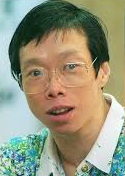Lee Kuan Yew’s daughter urges Singaporeans to remember his contributions without creating a personality cult.
SINGAPORE — The Singapore government recently announced initiatives to commemorate the 100th birth anniversary of the nation’s founding Prime Minister, Lee Kuan Yew, including the release of a commemorative coin and various exhibitions. In Parliament on February 7, Minister for Manpower Tan See Leng stated that many community groups have also proposed ideas to honor Mr. Lee, emphasizing his unique role in Singapore’s history.
He added that the tributes aim to raise awareness of Mr. Lee’s contributions, especially among younger generations who were either very young or not born when he stepped down from the Cabinet.
However, in response to the public tributes, Lee Wei Ling, Mr. Lee Kuan Yew’s daughter, took to social media to share her thoughts on the matter. In a post from 2016, she noted that her father would have “cringed at the hero worship” surrounding his memory. She explained that, while it is important to remember his contributions, Singaporeans should be cautious about creating a personality cult around him.
Lee Wei Ling recalled an experience from 1976 when she and her father visited China. During the trip, a group of young children greeted them with chants of “Welcome, Welcome, a Very Warm Welcome.” Her father was unimpressed by the excessive display and remarked that Singaporeans were not inclined to such artificial demonstrations of emotion. This moment, Lee Wei Ling said, reflected her father’s discomfort with excessive veneration.
She also reflected on the memorialization efforts after his death, asking how much the time and resources spent on these commemorations would truly benefit Singapore and its people. Lee Wei Ling reminded the public that her father had consistently rejected any form of cronyism or attempts to elevate his own image. He was focused on advancing Singapore, not on creating a legacy or being remembered for his personal glory.
“He strove hard and determinedly in life to advance Singapore, and not for his place in history, or leaving a great legacy,” Lee Wei Ling concluded, urging Singaporeans to remember her father’s work, rather than a constructed narrative of heroism.








